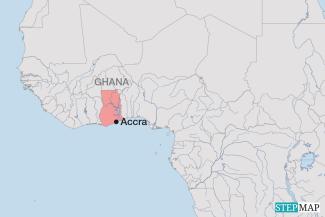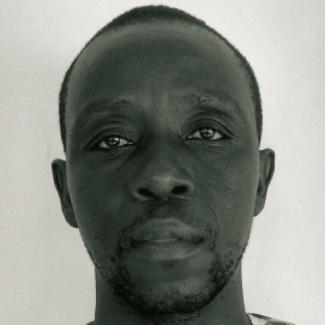Environmental destruction
Tackling illegal mining in Ghana
 Stepmap
Stepmap
Ghana is blessed with abundant natural resources, like gold, bauxite and oil with the mining industry playing a vital role in generating revenue, creating employment opportunities and supporting the livelihoods of over 30 million people.
Small-scale miners extract minerals like gold from sand or gravel using a variety of techniques, including underground, surface and placer mining. Many of them fail to adhere to proper mining protocols.
This mining practice has led to extensive deforestation, water pollution and land degradation, causing substantial irreversible damage to the country’s natural resources and threatening the livelihoods of hundreds of rural dwellers.
The World Bank Group reports that these activities are typically motivated by poverty and are commonly conducted in extremely impoverished and isolated rural areas by a population that often has limited education and lacks alternative employment prospects.
Illegal mining often attracts locals and foreigners, resulting in negative impacts on the environment. The improper disposal of waste from mining sites into rivers and streams puts communities at risk. Health experts also warn of the potential exposure of communities to harmful substances such as lead, mercury, arsenic and other heavy metals. It has also contributed to an increase in student attrition, juvenile exploitation and human trafficking, as well as substance abuse among youth.
Water pollution has forced local fishermen to abandon their work as fish and other organisms die. This also raises concerns about public health and destruction of tourism sites, cocoa farms and farm crops.
Head of communications at Ghana Water Company Limited, Stanley Martey, warns that if these destructive practices continue, the country may experience water shortages by 2025. “If that happens, the cost of water could become ten times more than what we have presently,” he said.
Kwaku Treveh, an advocate for small-scale miners, blames Ghana’s regulatory authorities. He says that if the authorities enforced regulations and provided guidance, miners would be able to act responsibly. Kwaku further argues that high mining license fees have led to illegal mining, as poor and jobless people often cannot pay the fees.
A new law, Act 995, was introduced in 2019 after parliament revised the 2006 Minerals and Mining Act (Act 703). Illegal miners face harsh punishments under this new law. In 2023, the government has taken harsh steps to fight illegal mining. Up to 21 Ghanaians were imprisoned for a total of 340 years for unlawful mining.
Dasmani Laary is a journalist in Ghana.
laarygna@gmail.com


